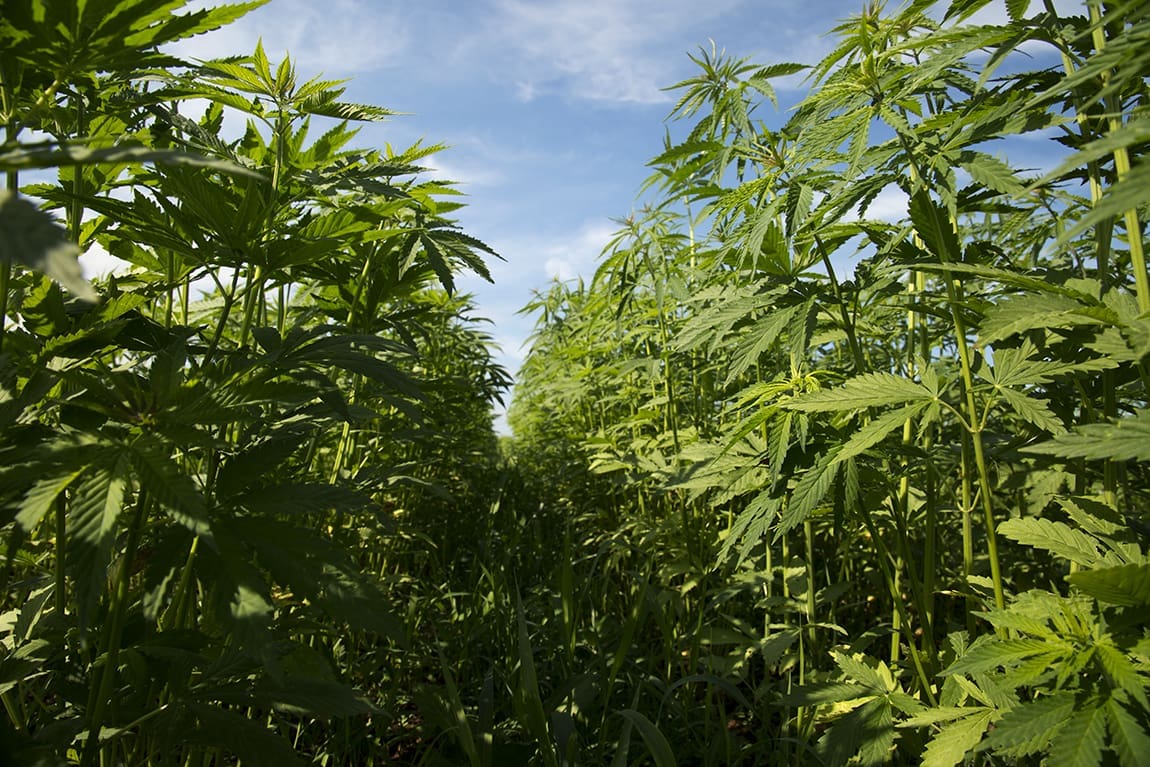Politics
Virginia Lawmakers Approve Governor’s Hemp Bill Amendments

“The Virginia hemp industry will lose jobs, innovation and business development because of this bill. Hemp consumers that rely on hemp products will have greatly reduced choices due to this bill.”
By Graham Moomaw, Virginia Mercury
Shortly after the Virginia General Assembly’s work began Wednesday, Senate Minority Leader Tommy Norment, R-Williamsburg, joked that he had texted his wife to say he was going to miss his own birthday dinner because the legislature was spending a lot of time “arguing about cannabis.”
As lawmakers returned to Richmond for a single day to take up mostly minor amendments and vetoes sent down by Gov. Glenn Youngkin (R), the question of what to do about hemp products that contain enough THC to mimic the high of marijuana was the most buzzworthy item on the agenda.
Both chambers ended up approving Youngkin’s edits to a bill creating new limits on how much THC hemp products can contain and tougher regulations on retailers who sell them. The proposal is largely aimed at hemp-derived products like delta-8, which has become a widely available alternative to marijuana. Though possession of small amounts of pot is now legal in Virginia, selling marijuana for purely recreational use remains illegal.
On Wednesday, the legislation’s backers called it a necessary step toward getting a handle on a largely unregulated market growing out of control, pointing to an uptick in poisonings and hospitalizations of minors after ingesting THC. Some critics warned the bill goes too far, saying it could devastate small hemp businesses and farmers while benefiting big cannabis companies licensed to sell medical marijuana in the state. Other opponents said amendments proposed by Youngkin gutted the bill’s public safety purpose, insisting it leaves too much room for state-sanctioned sales of marijuana-like products.
The General Assembly nevertheless agreed to Youngkin’s amendments, overpowering efforts to scrap the bill altogether. The law is expected to take effect July 1, but some legislators indicated it could be revisited if lawmakers reconvene in the next few months to finish work on the overdue state budget.
After pushback from parents of epileptic children concerned the bill would cut off their supply of CBD oil used as an anti-seizure treatment, Youngkin’s major amendment was loosening the proposal’s THC limits. Instead of capping THC at 2 milligrams per package, which would have banned a broad range of products, Youngkin proposed a 25-to-1 ratio of CBD to THC.
To explain that ratio, Sen. Emmett Hanger, R-Augusta, the patron of the hemp bill, invoked his aunt’s rum cake.
“It wasn’t going to get you intoxicated because there was a whole lot more sugar, flour and eggs and other stuff in there besides the rum,” Hanger said.
Del. Dawn Adams, D-Richmond, a nurse practitioner who has become a prominent voice on the science behind cannabis, warned that exemption would backfire. She said some members of the legislature were being fed “false information” about what that ratio would allow.
“We are creating a state-sanctioned illicit THC market by doing it this way,” said Adams.
Youngkin also proposed removing a provision that would have required manufacturers to add a bitter taste to topical products to deter anyone who might be thinking of trying to get high by eating CBD cream. That idea was abandoned after being deemed unnecessary.
The version proposed by the governor includes a $1,000 registration fee for any business intending to sell hemp products.
“It’s going to keep folks from setting up pop-up shops and things of that nature,” said House of Delegates Majority Leader Terry Kilgore, R-Scott, who sponsored the bill but acknowledged the final version may not be “perfect.”
Some Democratic lawmakers objected to what they saw as overly steep fines for businesses that violate the new rules. With fines of up to $10,000 per day, said Sen. Jeremy McPike, D-Prince William, a business that unknowingly had illegal products on its shelves for a month could be fined $300,000. Hanger defended the penalty structure by saying a main goal of the bill is to ensure people who make money from selling illegal products cannot “sustain their business.”
From start to finish, the bill drew strong opposition from the hemp industry. On Wednesday, Jason Amatucci, president of the Virginia Hemp Coalition, said he expects the new law to be challenged in court.
“The Virginia hemp industry will lose jobs, innovation and business development because of this bill,” Amatucci said. “Hemp consumers that rely on hemp products will have greatly reduced choices due to this bill.”
Lawmakers are allocating new funding to pay for an expanded team of inspectors to monitor what type of cannabis products are being sold in Virginia, but it’s unclear how strictly the new law will be enforced given the widespread availability of hemp-based products in smoke shops and convenience stores across the state.
Mercury intern Meghan McIntyre contributed reporting to this story.
This story was first published by Virginia Mercury.
Michigan Marijuana Sales Hit Record High Of $250 Million In March, State Data Shows
Photo courtesy of Brendan Cleak.




